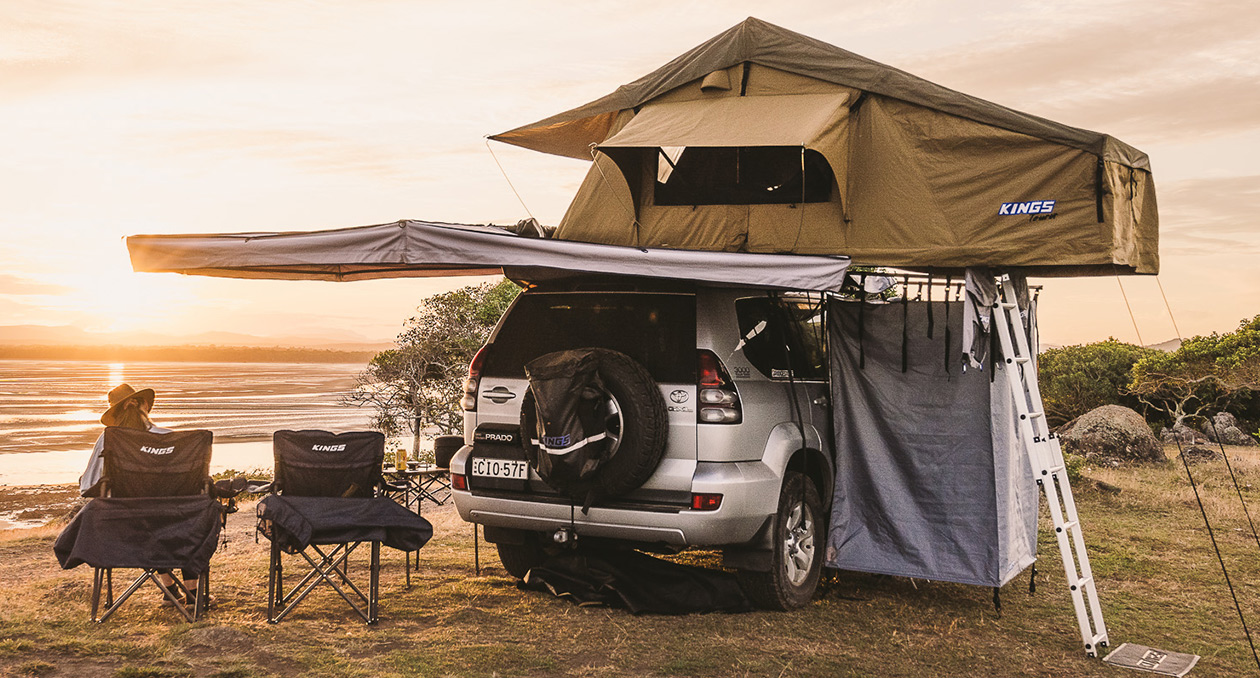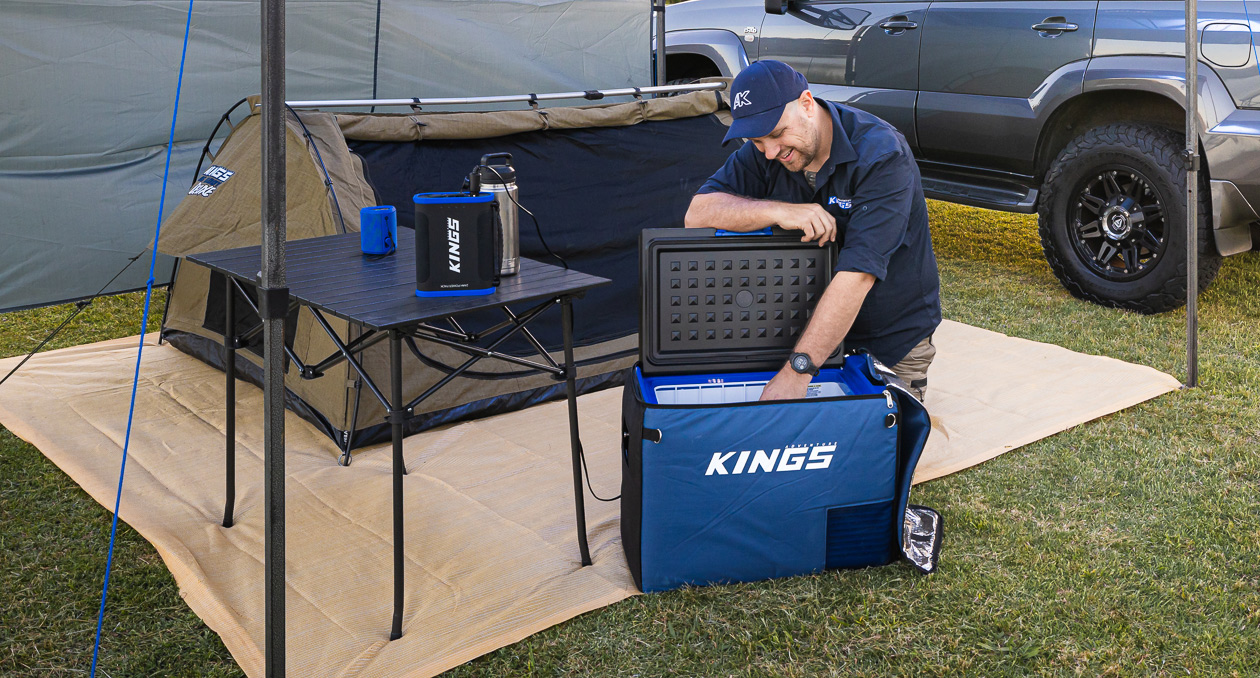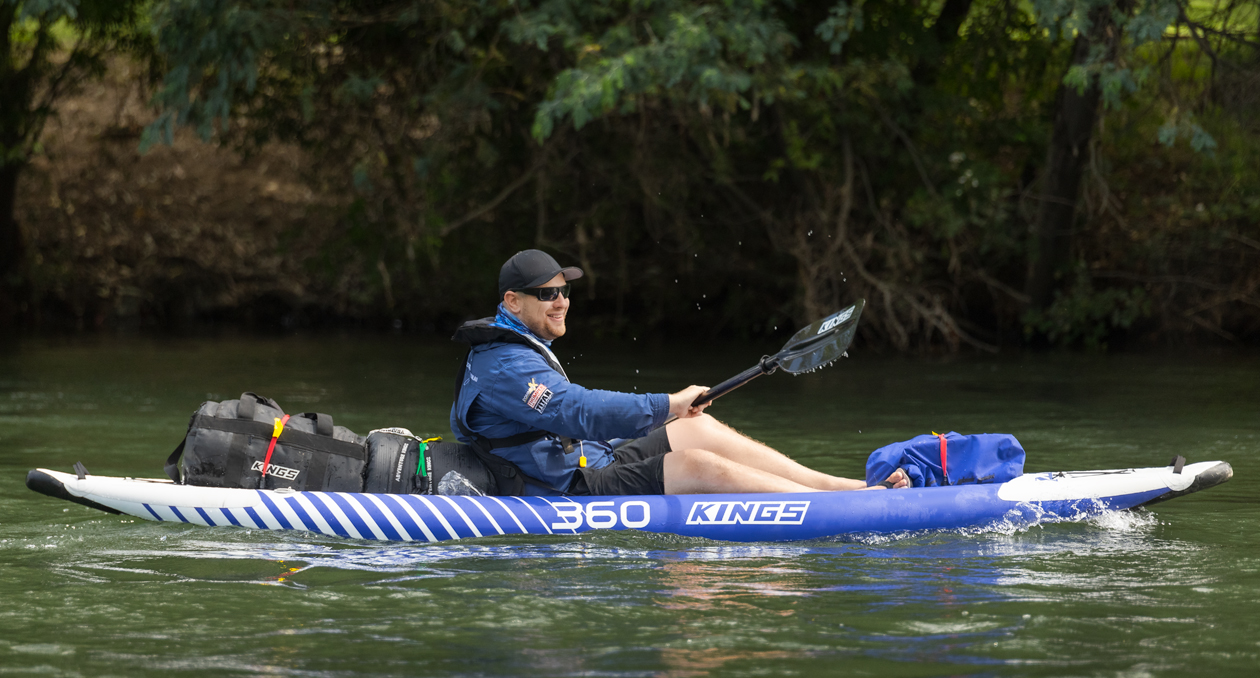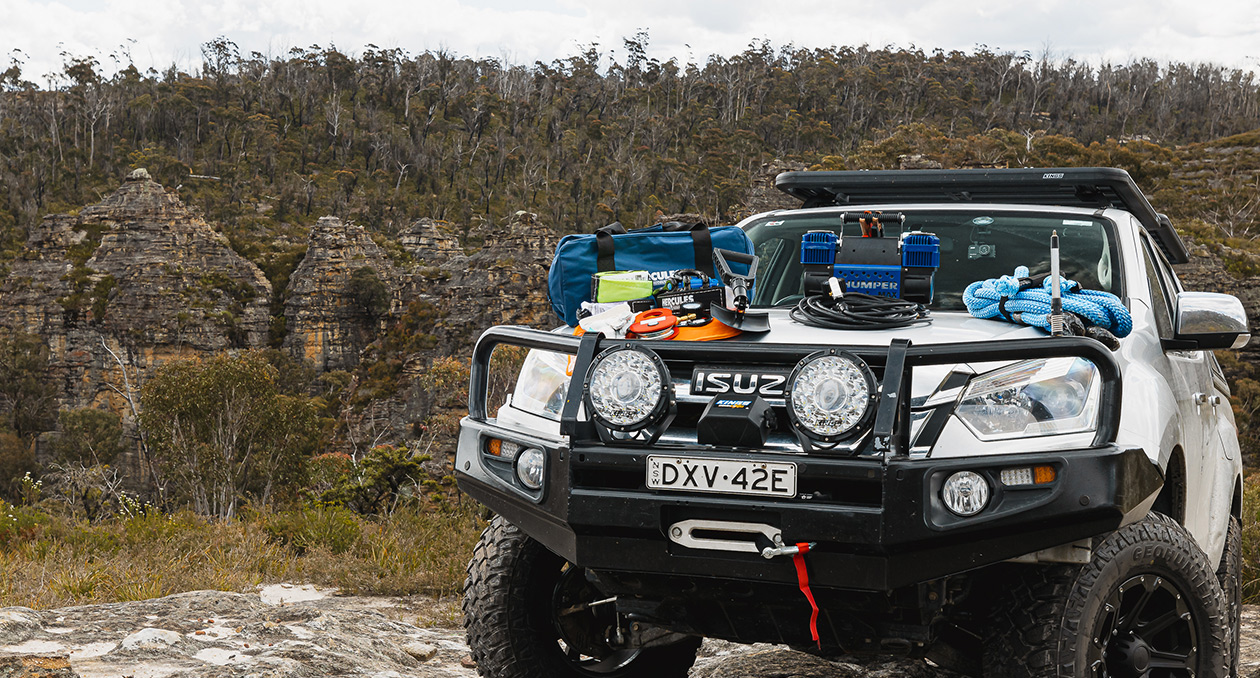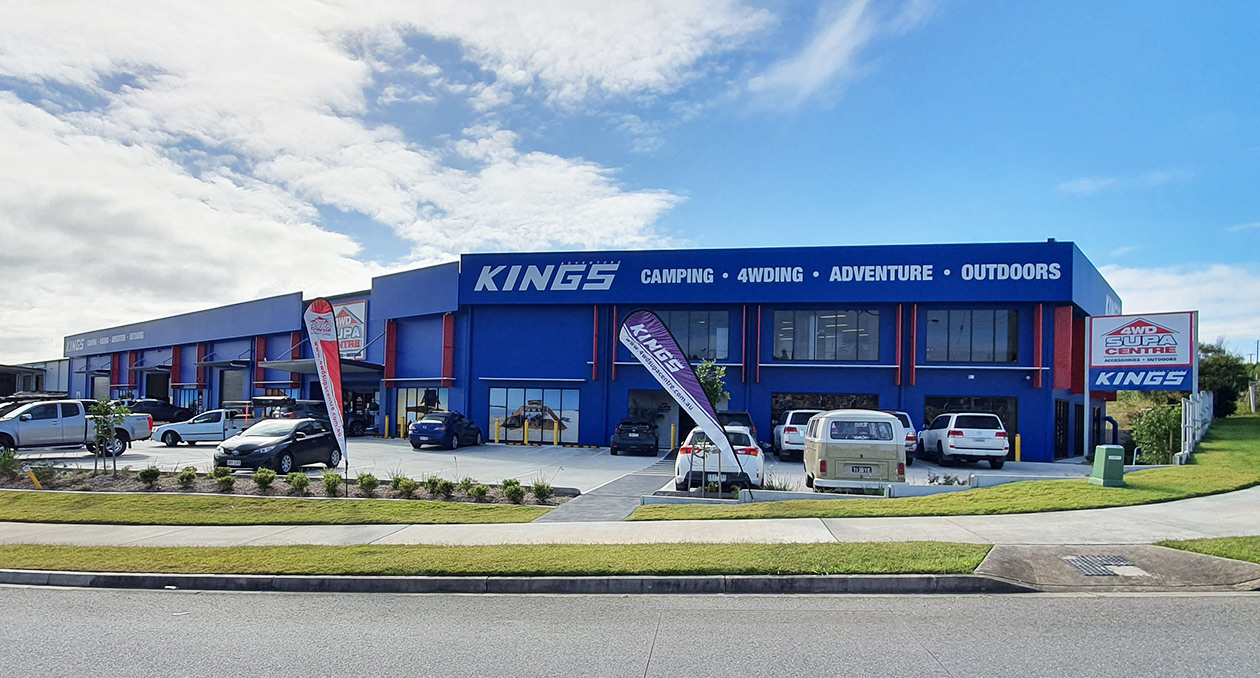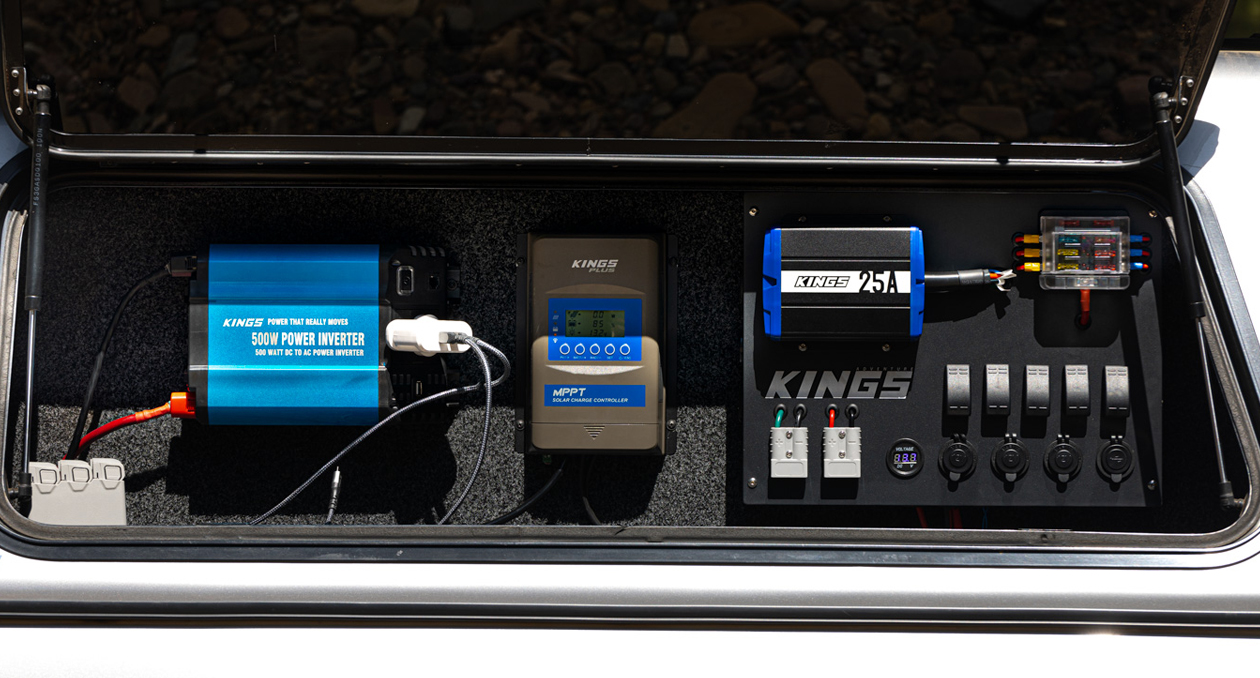Phone lines open 8am-8pm AEDT
Sleeping Bags
Kings’ sleeping bags are a must for any outdoor adventurer. Whether you're looking for a lightweight hiking sleeping bag, a cosy sleeping bag for winter warmth or a summer sleeping bag perfect for school camp, Kings has the best range of hiking and camping sleeping bags in Australia, designed for comfort, insulation and portability.
Any experienced outdoor enthusiast knows that having a quality sleeping bag can make or break a camping trip. Kings’ range of premium sleeping bags provides you with some of the best hiking sleeping bags available for the changeable Australian climate.
Kings’ sleeping bags use synthetic fibres to ensure superior insulation, while additional features like waterproof and thermal layers provide necessary protection against the elements. No matter your next adventure, Kings has you covered with lightweight sleeping bags for hiking, breathable summer sleeping bags, well-insulated camping sleeping bags and a range of sleeping bags for adults and children alike.
How do I choose the right sleeping bag?
The right sleeping bag is one of the most important camping accessories for your next outdoor adventure.
When choosing a sleeping bag, it is important to consider the forecasted weather, your desired activity, your sleep preferences and your budget.
For cold weather, hooded sleeping bags are ideal due to their superior insulation properties. For warmer weather, opt for a sleeping bag that emphasises breathability and moisture-wicking properties to stay cool and dry.
Lightweight sleeping bags are perfect for hiking, as they are easy to transport and don’t add much weight to your backpack.
Additionally, the fit of the sleeping bag is crucial for warmth and comfort. A snug bag will keep you warm but might be restrictive, while a double sleeping bag offers more space to move. Consider your sleep preferences and whether you tend to move around at night when selecting the size and shape of your sleeping bag.
Budget is also a key consideration. While high-end sleeping bags may be promoted as offering the best materials and insulation, many cheap sleeping bag options do not compromise significantly on quality and comfort. The Kings' range includes a variety of sleeping bags that cater to different needs and budgets, ensuring every camper can find something suitable for their style of camping.
Is it OK to sleep in a sleeping bag every night?
It is ok to sleep in a sleeping bag every night, especially if the bag is designed for extended use. Selecting a high-quality sleeping bag that suits your body size and the environmental conditions you expect to encounter is key to maintaining comfort.
Regular maintenance, including periodic cleaning and airing out, is essential to extend the lifespan of the sleeping bag. This care prevents moisture buildup and odour, ensuring the bag remains fresh and comfortable for daily use.
For those planning long-term use, it's beneficial to rotate between multiple sleeping bags to allow each one to fully air out and maintain its insulation properties.
The Kings' range includes lightweight sleeping bags that are ideal for regular use and are designed for both durability and comfort.
Benefits of synthetic & canvas sleeping bags versus down sleeping bags
While down sleeping bags are known for their warmth and insulation, synthetic sleeping bags offer significant advantages, especially in wet conditions.
Unlike down, synthetic fibres retain heat even when wet. They also dry faster and are easier to maintain, making them ideal for rugged outdoor activities.
Additionally, are hypoallergenic, making them a great choice for campers with allergies.
What sleeping bag do I need for winter?
For winter outdoor adventures, selecting the right sleeping bag is crucial to ensuring both warmth and safety.
Here are the key features to look for:
Optimal temperature rating - Choose a sleeping bag with a temperature rating that matches or is lower than the coldest temperature you expect to encounter. Winter sleeping bags typically have a rating of 0°C or lower, providing the necessary insulation for warmth during frigid nights.
Insulation type - While down sleeping bags offer excellent warmth-to-weight ratios and compressibility, they may not perform well in wet conditions unless specifically treated for water resistance. Synthetic sleeping bags retain warmth better when damp and dry faster, making them a practical choice for snowy or wet winter camping environments.
Bag shape and features - Hooded sleeping bags are preferable to maximise heat retention. Look for features like draft collars, insulated hoods, and zipper draft tubes that help prevent heat loss. A well-fitted sleeping bag is essential to keep the cold at bay and ensure a comfortable night's sleep in harsh winter conditions.
What kind of sleeping bag do I need for summer?
Choosing the right sleeping bag for summer camping can greatly enhance your comfort during warmer nights. Here are the essential factors to consider:
Lightweight and breathable materials - Opt for sleeping bags made from lightweight materials such as nylon or polyester. These fabrics not only reduce the bag's overall weight, making it easier to carry during hikes but also enhance breathability, preventing overheating.
Appropriate temperature rating - Summer sleeping bags should have a higher temperature rating. This higher rating ensures that the bag provides comfort without excessive warmth, making it ideal for most summer camping environments.
Additional Features for Comfort - Consider bags with features like full-length zippers which allow you to open the bag fully for ventilation on particularly warm nights.
Is it warmer to sleep with your clothes on in a sleeping bag?
Wearing clothes in a sleeping bag acts as an extra layer of insulation, increasing warmth. This is particularly effective with thermal or fleece clothing. However, avoid overly bulky or damp clothes as they can reduce the sleeping bag's effectiveness by limiting loft and trapping moisture.
Do you need blankets with sleeping bags?
While most premium sleeping bags are designed to function without blankets, adding one can provide extra warmth on particularly chilly nights or when using a lighter bag than the weather conditions warrant. This is especially useful when transitioning between seasons or for unexpected cold snaps.
Blankets can also add a layer of comfort and familiarity, which might be particularly appealing during longer camping trips.
Moreover, using a blanket can help protect the sleeping bag from body oils and dirt, reducing the need for frequent washes which can degrade the bag's materials. This is particularly beneficial for campers who are on extended trips and may not have the convenience of regularly laundering their gear.
Blankets are camping accessories that offer additional warmth, versatility and an extra layer of cleanliness.
How many years does a sleeping bag last?
A sleeping bag's durability is influenced by several factors, including the quality of materials used, the frequency of use, and the level of care it receives. Here's a breakdown of what you can expect in terms of lifespan and how to extend it.
Factors Affecting Lifespan
Material and quality - High-quality sleeping bags like those in the Kings’ range, are made with durable materials and superior craftsmanship and can last anywhere from 5 to 10 years or more. In contrast, sleeping bags made from lower-quality materials may require replacement every 2 to 3 years.
Usage frequency - The more frequently a sleeping bag is used, the quicker it may wear out. Frequent compression and exposure to elements can accelerate ageing.
Care and maintenance - Proper maintenance such as regular cleaning, airing out after trips, and correct storage significantly extend a sleeping bag's usable life.
Maintenance Tips to Extend Lifespan
Low speed, cold water wash. Do not tumble dry.
Make sure the sleeping bag is completely dry before storing.
